Huge Initiative Underway To Help Save The Easter Holiday Period
As many as 26 ships have been commissioned to deal with the sargassum problem in Cancun and Quintana Roo. This year is set to be one of the worst years on record for the unsightly seaweed.
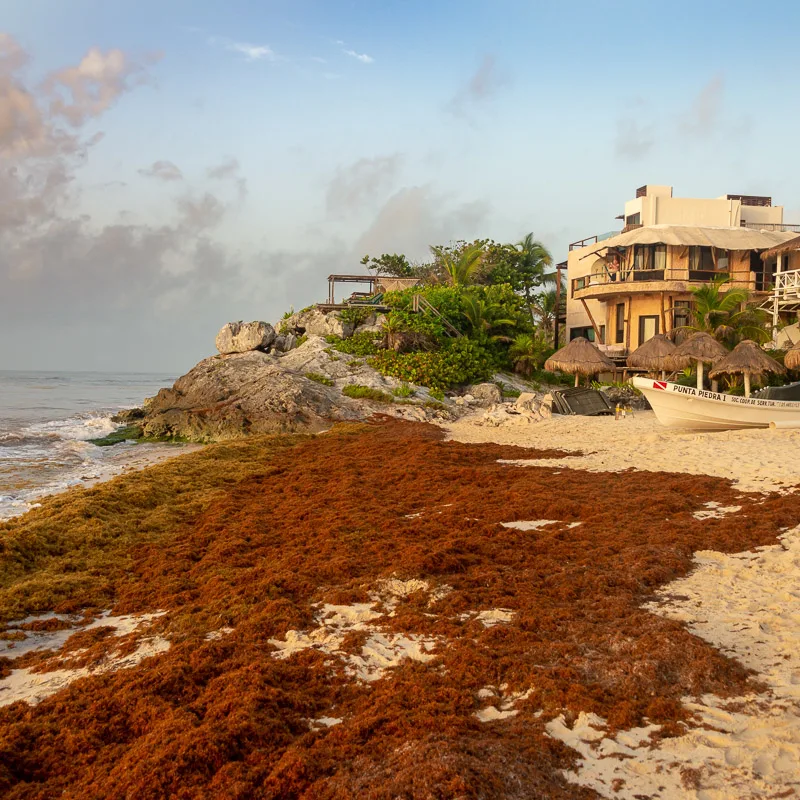
The huge influx of sargassum fighting ships has been sent from the Naval base in Chetumal to lend support to the hotel regions in Cancun, Playa del Carmen, and Tulum, which are all struggling with high volumes of the seaweed.
The mobilization was part of a plan started by the new committee that’s sole purpose is dealing with sargassum deposits in the area. Members of the local government and environmental heads have come together in the committee to solve the problem in a responsible but effective manner.
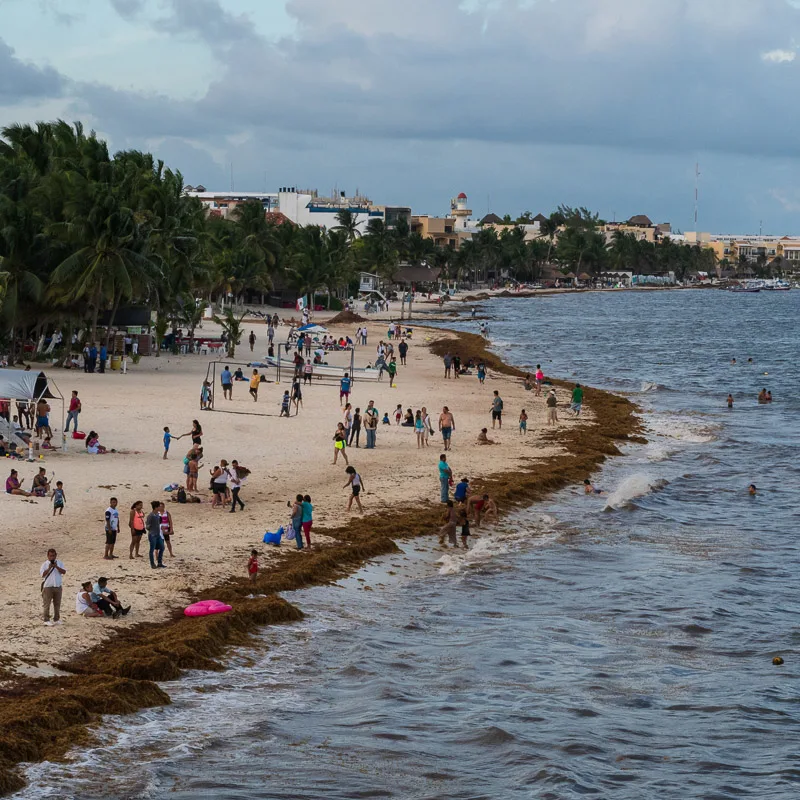
Included in the fleet of ships is at least one sargacero ship, which will be the largest vessel. Operating. These large navy ships are capable of pulling in huge amounts of sargassum and will be one of the most effective defenses for the Quintana Roo coast. Several different methods are used to track large islands of the seaweed, and the sargacero will be sent to pick it up as quickly as possible.
Also part of the fleet will be eleven coastal sargacero ships. These are smaller than the one large one which can pick the seaweed out at sea, and will attempt to collect the deposits as they approach the coast but before they make landfall. It is anticipated these will be the busiest ships in the group.
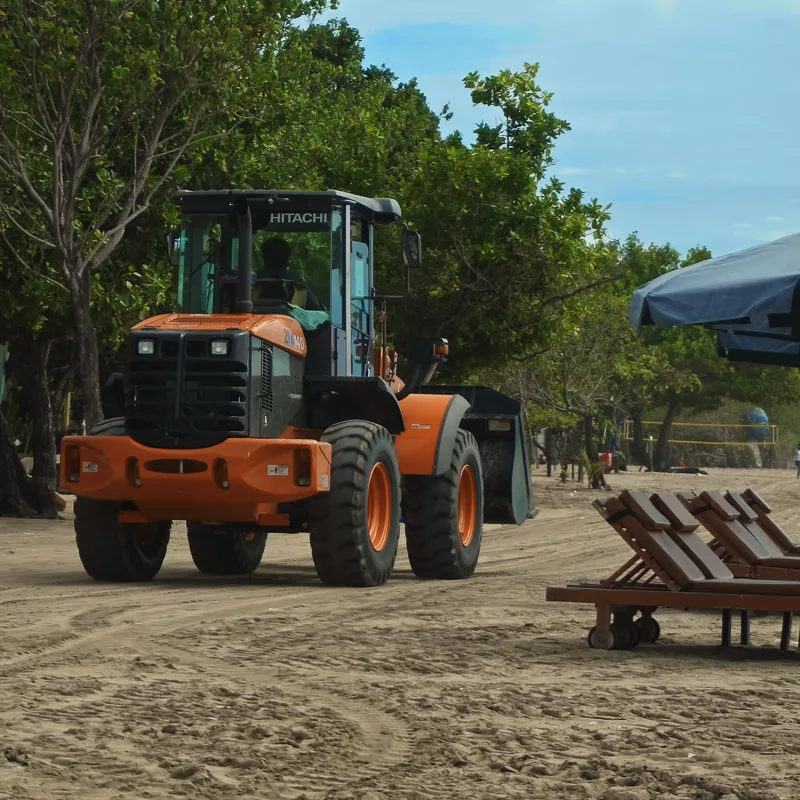
Sixteen smaller boats will also be added to the force, and although it is not specified exactly what their function will be, it is anticipated they will contribute to adding barriers and helping to pick up the tangles of sargassum in less popular spots.
With 26 vessels all operating up and down the coast, it is hoped the sargassum problem will be greatly diminished. Preventing the seaweed from hitting the shoreline is the easiest way to deal with the issue, and prevents hotels and other private establishments from needing to clear it manually in the mornings.
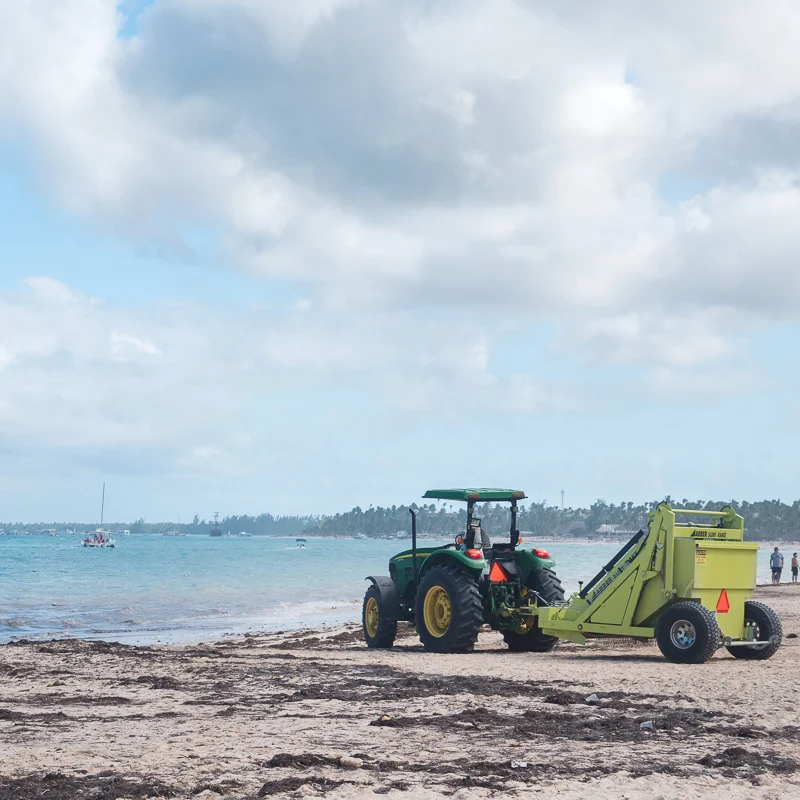
On top of the ships, over 9 thousand meters of sargassum barriers are to be installed, and at least four large tractors have been brought in with sweeping abilities to clear the beaches of any deposits that make it through.
Poor weather has slowed the Navy’s progress in placing the sargassum barriers. It was hoped that all of the main beaches would be protected by this point, but there is still a good amount of work to be done. It has meant that different programs have been used to get rid of as much seaweed as possible, including offering prisoners the chance to reduce their sentence if they contribute to the cleanup effort.
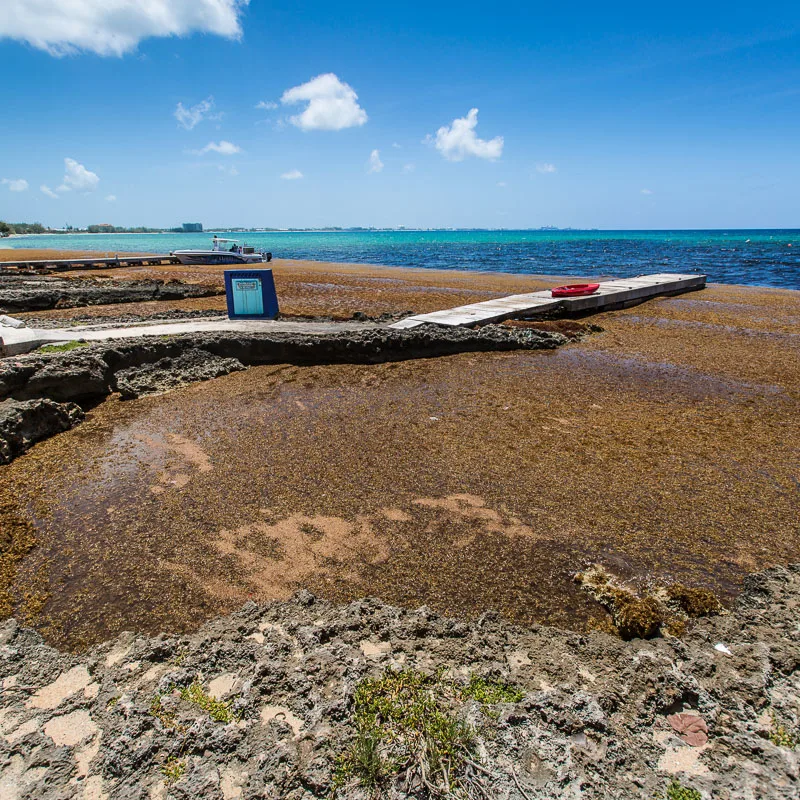
With the Easter season in full swing, the state is working its hardest to keep the beaches clean. Several smaller beaches in the Playa del Carmen area have been closed due to the large amounts of seaweed, but most hotels have been doing an adequate job of keeping their own stretch of sand relatively clear. Although, many tourists have complained about the sight and smell of the sargassum.
Sargassum seaweed is unlikely to go away anytime soon. The macroalgae form miles out to sea in the middle of the Atlantic Ocean and thrive in warmer water. With the global sea temperatures continuing to rise, sargassum is only expected to grow more prominent as it has done in the past decade.
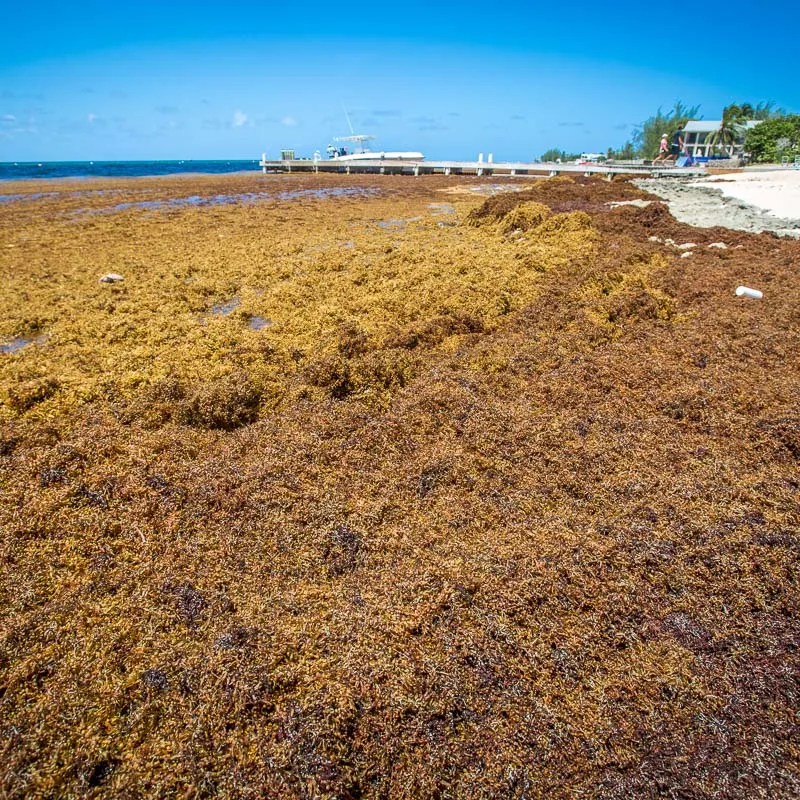
At sea, it causes no problems and is extremely beneficial for the ecosystems utilizing the huge masses of tangled seaweed. But when it hits land, it produces a rancid sulfur-like smell that deters tourists from using the typically pristine beaches of the Caribbean.
Plan Your Next Cancun Vacation:
Traveler Alert: Don’t Forget Travel Insurance For Your Next Trip!
Choose From Thousands of Cancun and Riviera Maya Hotels, Resorts and Hostels with Free Cancellation On Most Properties
↓ Join the community ↓
The Cancun Sun Community FB group has all the latest travel news, conversations and tourism Q&A’s for the Mexican Caribbean

Subscribe to our Latest Posts
Enter your email address to subscribe to The Cancun Sun’s latest breaking news affecting travelers, straight to your inbox.
